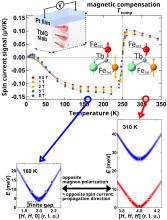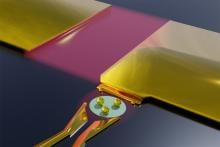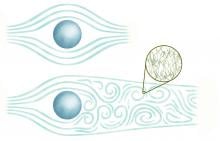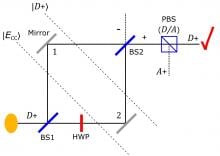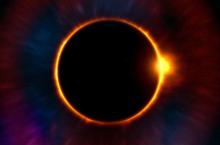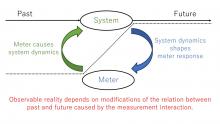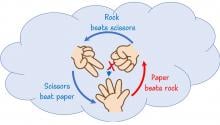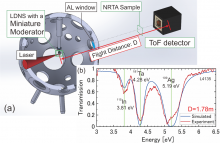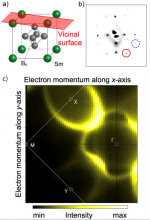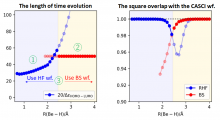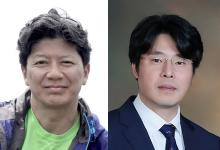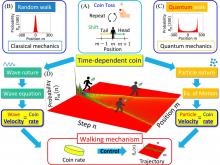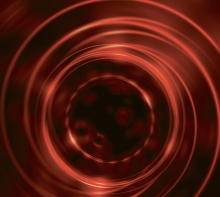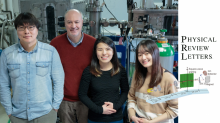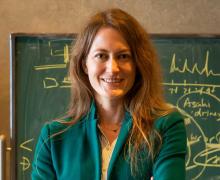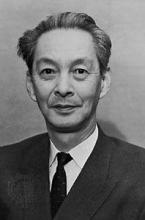Physics Quantum physics
News
14 Mar 2024
Ancient Mars biomolecules, Gargling away bad bacteria, Molecule glasses magnify life-chemical observations, Cholesterol and cancer link, Quantum electronics leap, Plus our updated Experts for Media: Women list & Asia Research News 2024 is here. Read all in the latest Editor's Choice.
13 Feb 2024
Researchers from the Institute of Industrial Science, The University of Tokyo have solved a foundational problem in transmitting quantum information, which could dramatically enhance the utility of integrated circuits and quantum computing.
29 Jan 2024
A theoretical framework for measuring the Reynolds similitude in superfluids could help demonstrate the existence of quantum viscosity
05 Jan 2024
What actually happens is much weirder, and may help us understand more about quantum mechanics
11 Oct 2023
In a recent publication in EPJ Quantum Technology, Le Bin Ho from Tohoku University’s Frontier Institute for Interdisciplinary Sciences has developed a technique called "Time-dependent Stochastic Parameter Shift" in the realm of quantum computing and quantum machine learning. This breakthrough method revolutionizes the estimation of gradients or derivatives of functions, a crucial step in many computational tasks.
11 Sep 2023
Elusive fundamental particles called neutrinos are predicted to interact unexpectedly with photons under extreme conditions.
23 Aug 2023
Quantum physicists have found that the outcomes of measurements are shaped by the complex dynamics of measurement interactions, questioning our usual understanding of observable reality.
19 Apr 2023
In the quantum world particles can instantaneously know about each other’s state, even when separated by large distances. This is known as nonlocality. Now, A research group has produced some interesting findings on the Hardy nonlocality that have important ramifications for understanding quantum mechanics and its potential applications in communications.
01 Feb 2023
Osaka University researchers investigated the physics of laser-driven neutron sources, and found the relationship between the power and the neutrons generated. They were able to decrease the exposure time needed for neutron absorption experiments, which may be employed in biomedical research.
24 Jan 2023
Researchers from Osaka University created a bound state of a proton and a K- meson known as Λ(1405), and measured its mass. The data implied that it consisted of five quarks. This work may help scientists develop a theory of exotic matter that existed in the early Universe or in neutron stars.
30 Sep 2022
Researchers from Osaka University revealed that the surface electronic structure of topological insulators varies according to its surface atomic structure, even though it was believed to have been protected by the symmetry of the electronic structure inside the crystal and is therefore unaffected by differences in surface atomic structure. This work offers a new means of minimizing the power consumption and increasing the speed of next-generation technology.
02 Aug 2022
Osaka Metropolitan University researchers have clarified the first suitable computational conditions for Adiabatic State Preparation (ASP) executable on a quantum computer, a method that can improve the accuracy of calculating atomic and molecular wave functions.
ASP is thought to be one of the leading methods for efficiently preparing correlated wave functions of molecules with complex electronic structures, but the specific conditions required for the calculations have not been thoroughly investigated so far. This new research has clarified the computational conditions needed to use ASP, a major development for making quantum chemical calculations on a quantum computer practical for chemical or materials research.
02 Sep 2021
Researchers have developed a general quantum algorithm that can directly calculate the energy difference of an atom and molecule using a quantum computer. By avoiding the need to calculate the total molecular energies, the general algorithm is expected to be applied not only to quantum chemical calculations but also to various physical and mathematical problems, which are intractable with nowadays classical computers.
14 Apr 2021
Prof. June.M. Kwak, and Prof. Chang-Hee Cho are selected for the research funds granted by Samsung Science & Technology Foundation
29 Mar 2021
A paper by the Kavli Institute for the Physics and Mathematics of the Universe (Kavli IPMU) Director Ooguri Hirosi and Project Researcher Matthew Dodelson on the string theoretical effects outside the black hole photon sphere has been selected for the “Editors’ Suggestion” of the journal Physical Review D. Their paper was published on March 24, 2021.
17 Mar 2021
Researchers improve their newly established quantum algorithm, bringing it to one-tenth the computational cost of Quantum Phase Estimation, and use it to directly calculate the vertical ionization energies of light atoms and molecules such as CO, O2, CN, F2, H2O, NH3 within 0.1 electron volts of precision.
16 Feb 2021
Holger F. Hofmann, professor in the Graduate School of Advanced Science and Engineering, Hiroshima University, published a method to experimentally demonstrate the precision of quantum measurements on Feb. 3 in Physical Review Research. His work has implications for our fundamental understanding of physics at the level of individual quantum objects.
30 Oct 2020
A research team based in Japan may be moving toward a more controlled walk by unveiling the mechanism underlying the directional decision of each quantum step and introducing a way to potentially control the direction of movement.
21 Jan 2020
Vortex-like flows of light particles within an optical fibre could help solve the unsolvable.
26 Aug 2019
A recent study, affiliated with South Korea's Ulsan National Institute of Science and Technology (UNIST) has laid a solid foundation for further study of dispersive interaction by verifiying a new mechanism for matter-wave diffraction.

13 Dec 2017
A theoretical model will allow systematic study of a promising class of peculiar quantum states.
Events
Sorry, nothing coming up for this discipline
Researchers
Emily Nardoni is a Kavli IPMU Fellow and project researcher. She specializes in theoretical high energy physics, with her research focus on understanding the nature of quantum field theory (QFT).
Giants in history
Shinichiro Tomonaga (31 March 1906 – 8 July 1979), together with Richard Feynman and Julian Schwinger, was awarded the Nobel Prize in Physics in 1965, for their contributions to advance the field of quantum electrodynamics. Tomonaga was also a strong proponent of peace, who actively campaigned against the proliferation of nuclear weapons and promoted the peaceful use of nuclear energy.


